new to the gluten free journey?
new to the gluten free journey?
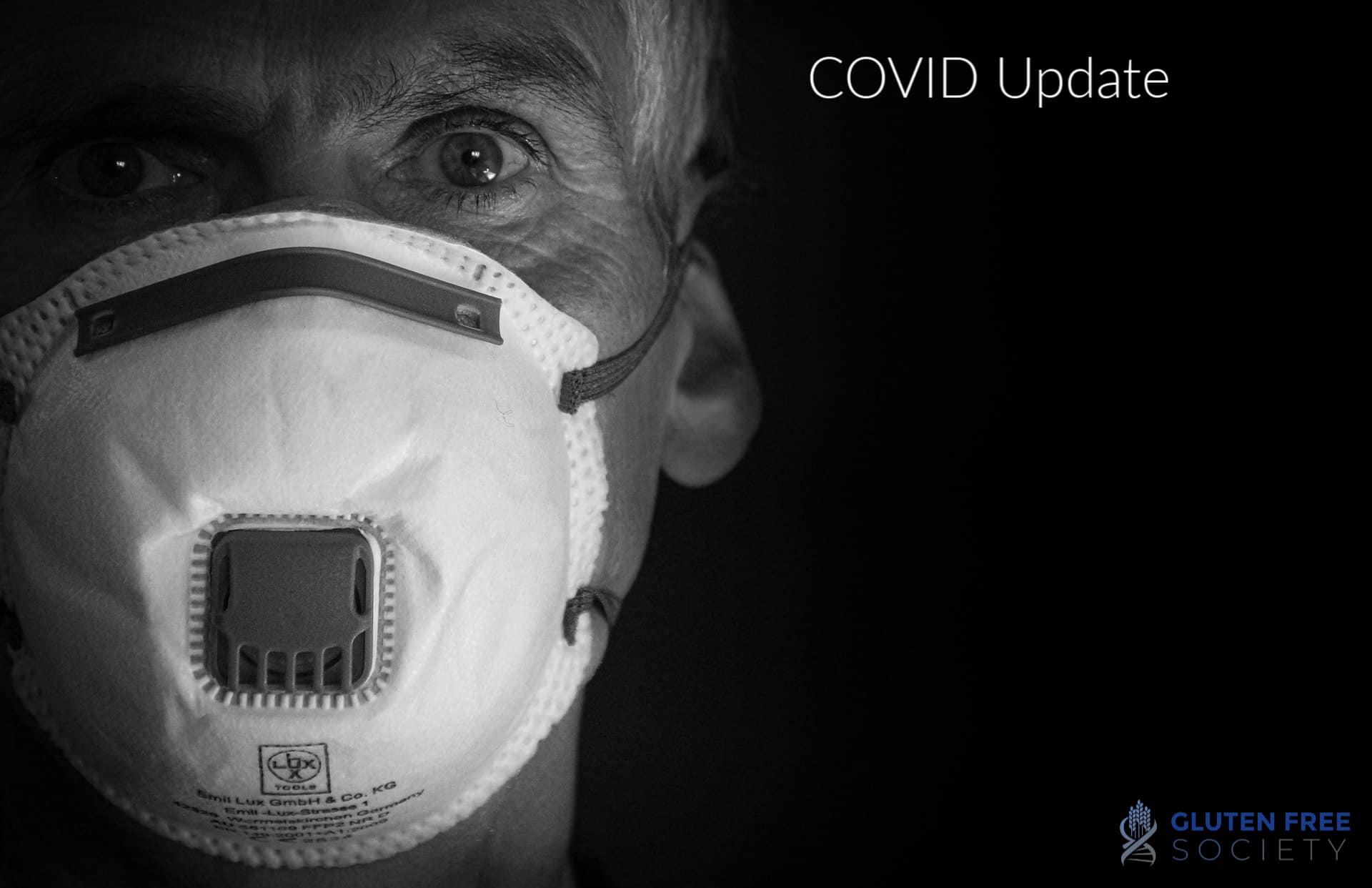

Contents
Toggle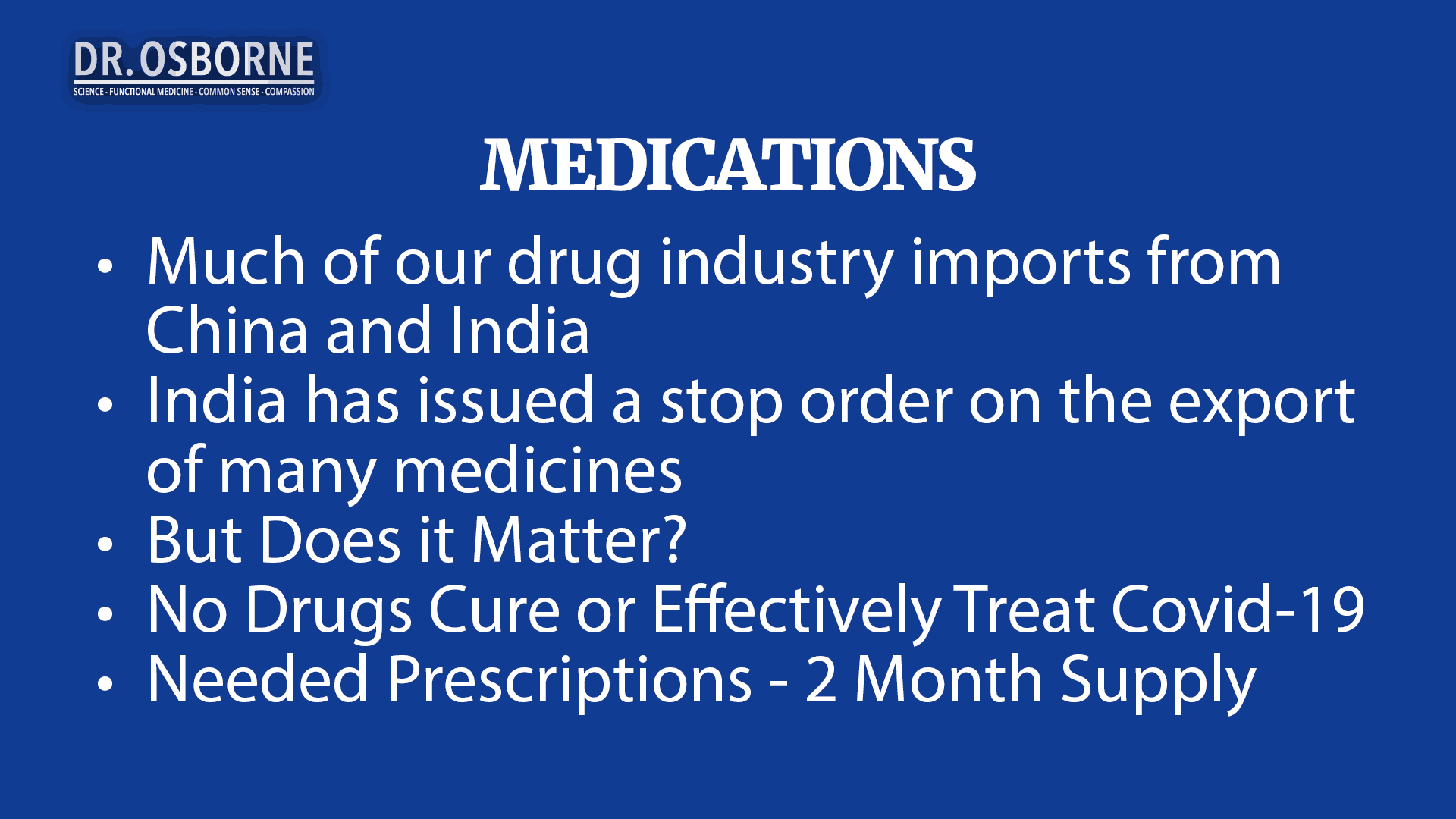 While there are no known medications that actually treat Covid-19, there are often secondary bacterial infections that can be treated. In many cases, it is not coronavirus that is killing people, it is pneumonia that is occurring right after it. The virus comes in, wipes out the immune system, and the body can then not tackle any bacterial infection that replaces it.
As a result, there is a need to have antibiotics on hand, if possible. Though this seems like a simple solution, most medicines are made in China and India. Both of these places have been hit hard with the virus and are in quarantine, lowering the capacity to obtain these medicines. India has even claimed that they will start saving the medication for their own citizens.
While there are no known medications that actually treat Covid-19, there are often secondary bacterial infections that can be treated. In many cases, it is not coronavirus that is killing people, it is pneumonia that is occurring right after it. The virus comes in, wipes out the immune system, and the body can then not tackle any bacterial infection that replaces it.
As a result, there is a need to have antibiotics on hand, if possible. Though this seems like a simple solution, most medicines are made in China and India. Both of these places have been hit hard with the virus and are in quarantine, lowering the capacity to obtain these medicines. India has even claimed that they will start saving the medication for their own citizens.
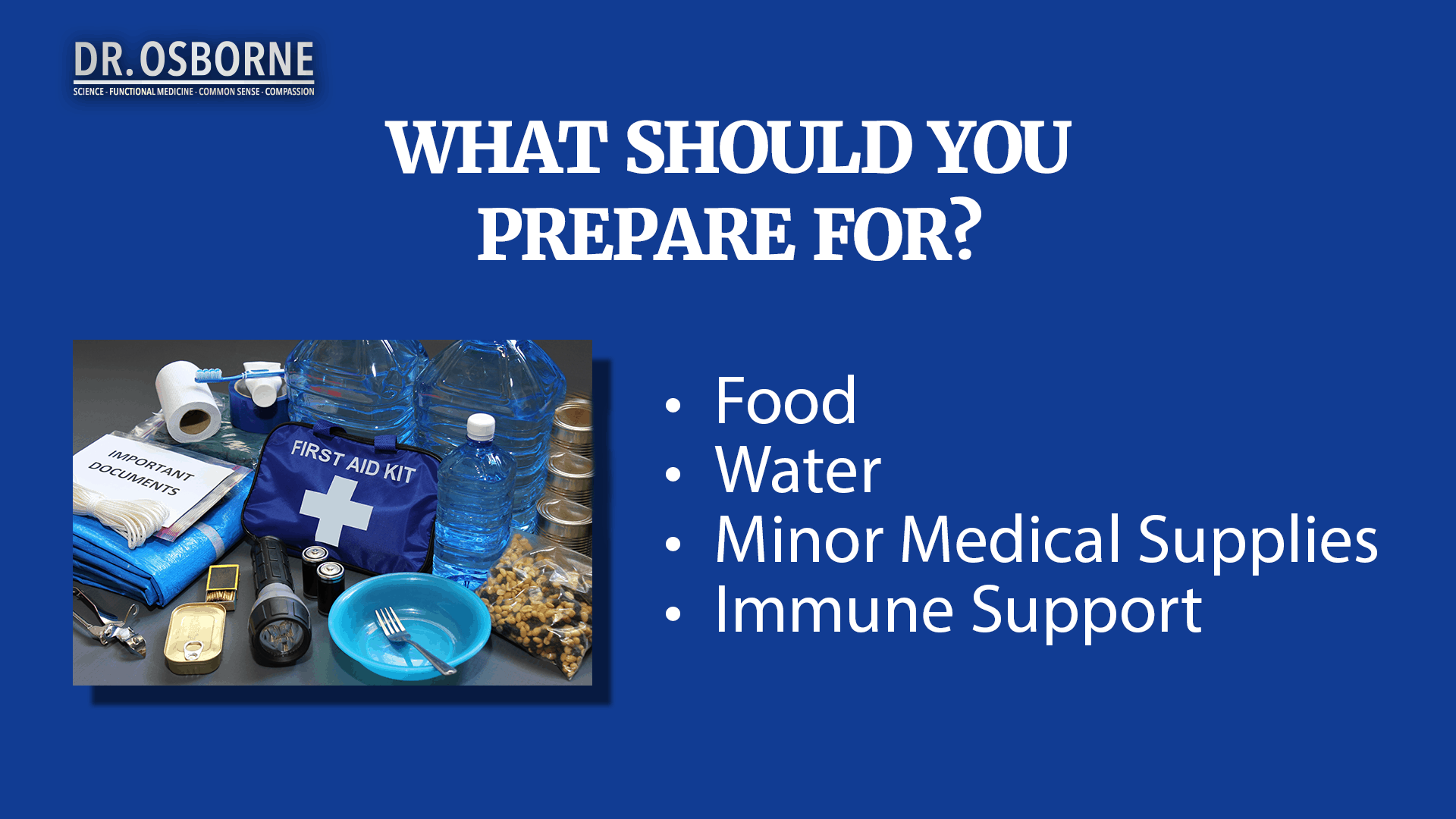 So how can people prepare for a possible shortage of medicine and what medicine should be obtained? First, stock up on fever-reducing medication, at least enough to last two months. This includes medicine like ibuprofen, aspirin, and Tylenol. All of these will break fevers allowing the body enough energy to keep fighting infection.
Again, if a doctor will write a prescription for an antibiotic, have that prescription filled. Be sure to get other prescribed medications like those for thyroid and anti-inflammatory issues, Crohn’s disease, asthma, and ulcerative colitis. Though most of these medications are not good to use chronically, they can be employed as a back-up or to help in an emergency situation. Find brands that do not use corn or GMO fillers. Natural alternatives to medicines like Tylenol and ibuprofen can also be found. White willow bark is a popular one that helps to reduce fevers and can be found at most health stores.
So how can people prepare for a possible shortage of medicine and what medicine should be obtained? First, stock up on fever-reducing medication, at least enough to last two months. This includes medicine like ibuprofen, aspirin, and Tylenol. All of these will break fevers allowing the body enough energy to keep fighting infection.
Again, if a doctor will write a prescription for an antibiotic, have that prescription filled. Be sure to get other prescribed medications like those for thyroid and anti-inflammatory issues, Crohn’s disease, asthma, and ulcerative colitis. Though most of these medications are not good to use chronically, they can be employed as a back-up or to help in an emergency situation. Find brands that do not use corn or GMO fillers. Natural alternatives to medicines like Tylenol and ibuprofen can also be found. White willow bark is a popular one that helps to reduce fevers and can be found at most health stores.
 While medication can be useful to obtain, consider also stocking up on supplements for the whole family. Not only can this help prepare the immune system for any impending viruses or infection, but they can also support it during illness. As most know, Vitamin C is imperative for immune support and should be taken in powder form, if possible.
Additional supplements include:
While medication can be useful to obtain, consider also stocking up on supplements for the whole family. Not only can this help prepare the immune system for any impending viruses or infection, but they can also support it during illness. As most know, Vitamin C is imperative for immune support and should be taken in powder form, if possible.
Additional supplements include:
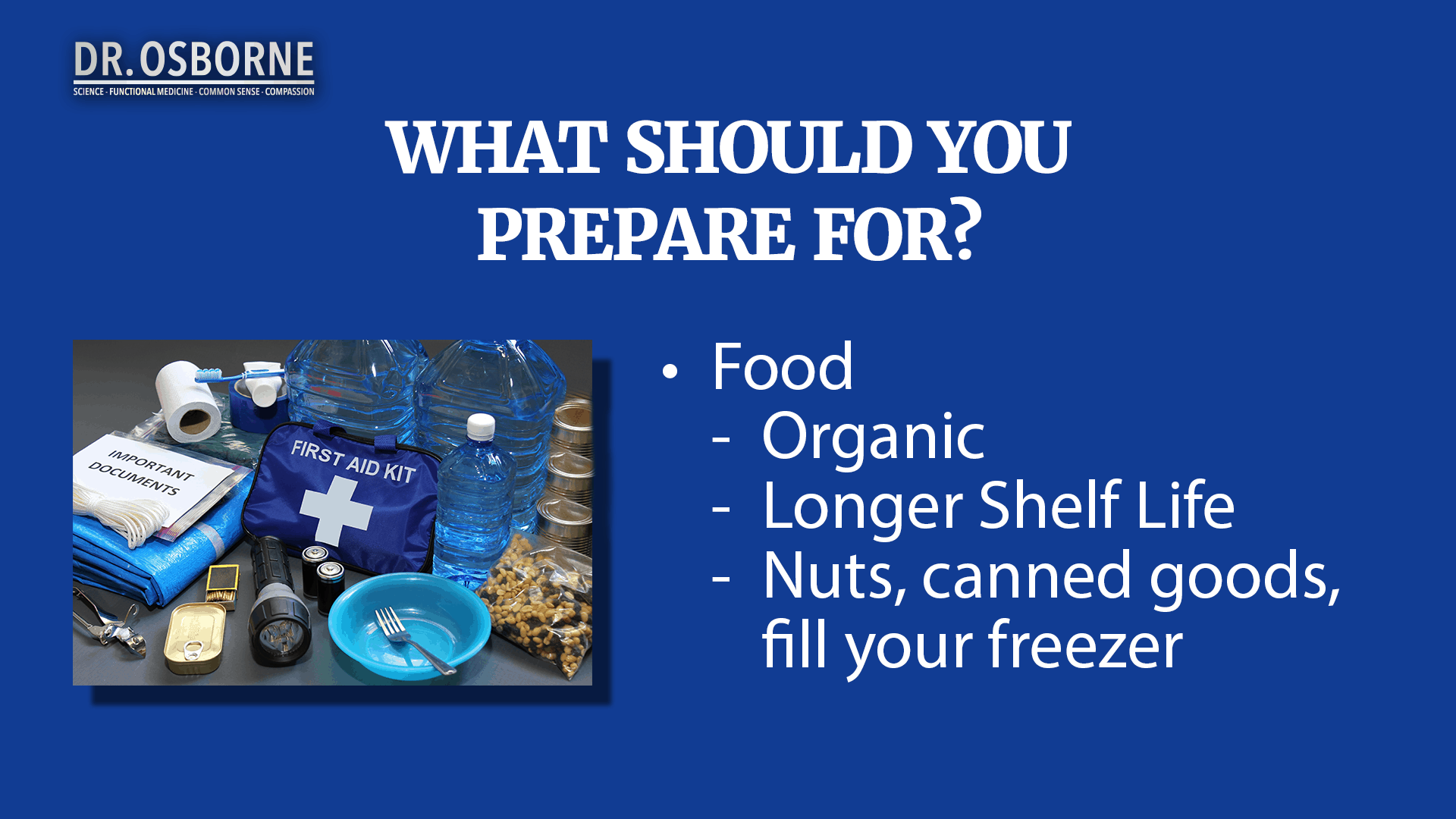 Another important way to be prepared for the Covid pandemic is to have a small stockpile of food. Try to pick things that would be eaten normally, or that will still be used even if not needed in an emergency situation. Also, look for items that will have a longer shelf life, anywhere from five to ten years. These may include:
Another important way to be prepared for the Covid pandemic is to have a small stockpile of food. Try to pick things that would be eaten normally, or that will still be used even if not needed in an emergency situation. Also, look for items that will have a longer shelf life, anywhere from five to ten years. These may include:
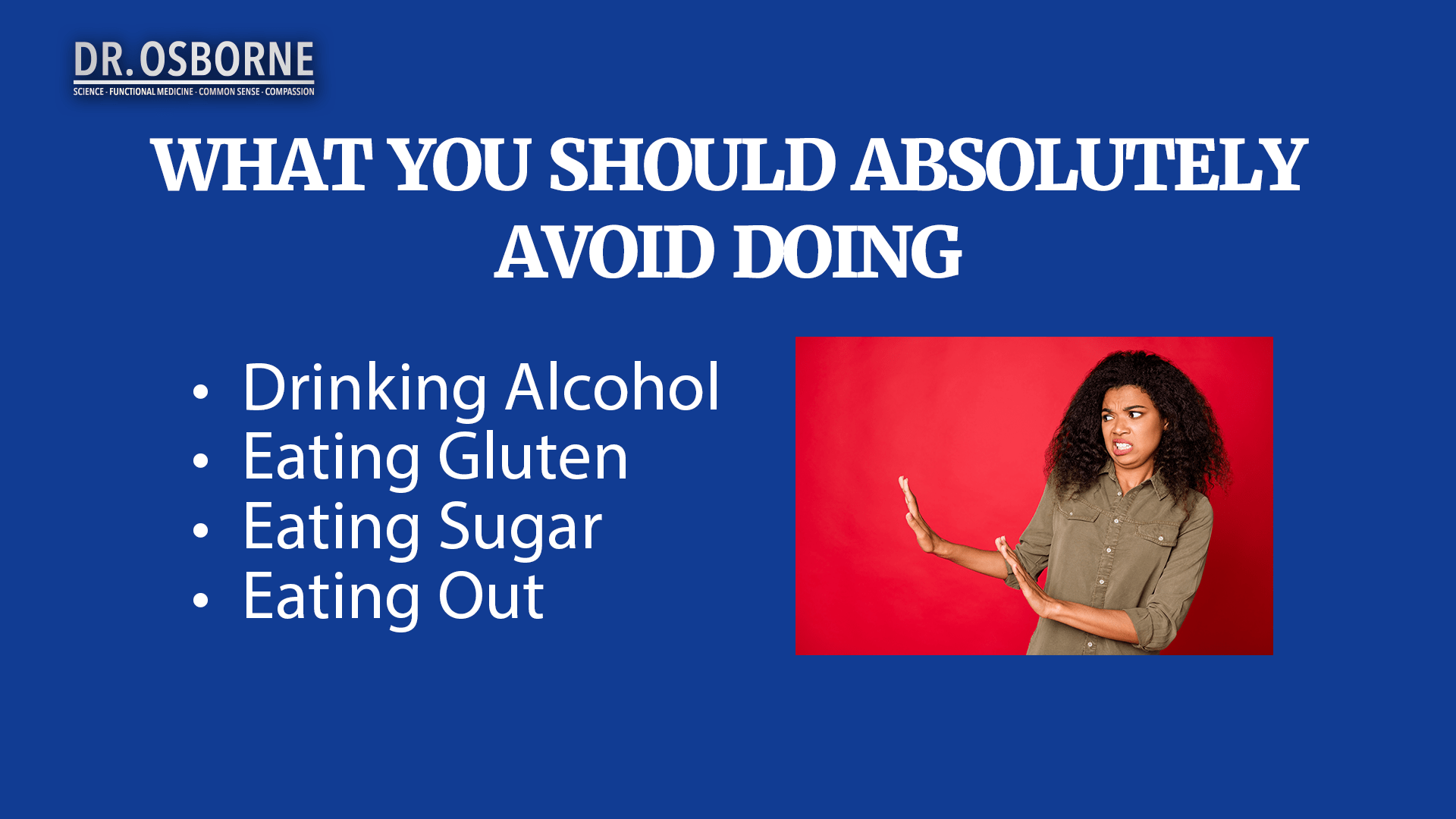 Even though it may seem easier to stock up on junk food during this time, don’t do it. These heavily processed items, along with sugar and alcohol can overwhelm and even damage the immune system-putting individuals at a distinct disadvantage to fight infection.
Those with gluten sensitivities should continue to avoid gluten and everyone should refrain from eating out. It alone is one of the easiest ways to spread communicable diseases.
Even though it may seem easier to stock up on junk food during this time, don’t do it. These heavily processed items, along with sugar and alcohol can overwhelm and even damage the immune system-putting individuals at a distinct disadvantage to fight infection.
Those with gluten sensitivities should continue to avoid gluten and everyone should refrain from eating out. It alone is one of the easiest ways to spread communicable diseases.
 Since so many things seem out of control right now, it’s important to maintain the right focus. First, focus on not panicking. Though Covid-19 is a serious condition, taking these steps and being prepared can help the entire family fight this virus.
Next, eat right, get plenty of sleep, get fresh air and sunshine, and stay active. Any movement will help circulate lymphatic fluids in the body which play a major part in how the immune system successfully operates.
Since so many things seem out of control right now, it’s important to maintain the right focus. First, focus on not panicking. Though Covid-19 is a serious condition, taking these steps and being prepared can help the entire family fight this virus.
Next, eat right, get plenty of sleep, get fresh air and sunshine, and stay active. Any movement will help circulate lymphatic fluids in the body which play a major part in how the immune system successfully operates.
 While all may benefit, it is imperative that the elderly and those who are immunosuppressed take heed of the following tips:
While all may benefit, it is imperative that the elderly and those who are immunosuppressed take heed of the following tips:
 As the old adage goes, “failing to plan is planning to fail,” and with the coronavirus, it’s no different. Being prepared and creating a plan now means that you won’t have to panic down the road. And, as you take steps to care for your family, remember that you are not the only one going through this. So, be kind and considerate of others, don’t stockpile unnecessary items, and be sure to look out for those who may be more vulnerable in your community.
As the old adage goes, “failing to plan is planning to fail,” and with the coronavirus, it’s no different. Being prepared and creating a plan now means that you won’t have to panic down the road. And, as you take steps to care for your family, remember that you are not the only one going through this. So, be kind and considerate of others, don’t stockpile unnecessary items, and be sure to look out for those who may be more vulnerable in your community.
Stay up-to-date with the latest articles, tips, recipes and more.

*These statements have not been evaluated by the Food and Drug Administration. This product is not intended to diagnose, treat, cure or prevent any disease.
If you are pregnant, nursing, taking medication, or have a medical condition, consult your physician before using this product.
The entire contents of this website are based upon the opinions of Peter Osborne, unless otherwise noted. Individual articles are based upon the opinions of the respective author, who retains copyright as marked. The information on this website is not intended to replace a one-on-one relationship with a qualified health care professional and is not intended as medical advice. It is intended as a sharing of knowledge and information from the research and experience of Peter Osborne and his community. Peter Osborne encourages you to make your own health care decisions based upon your research and in partnership with a qualified health care professional.